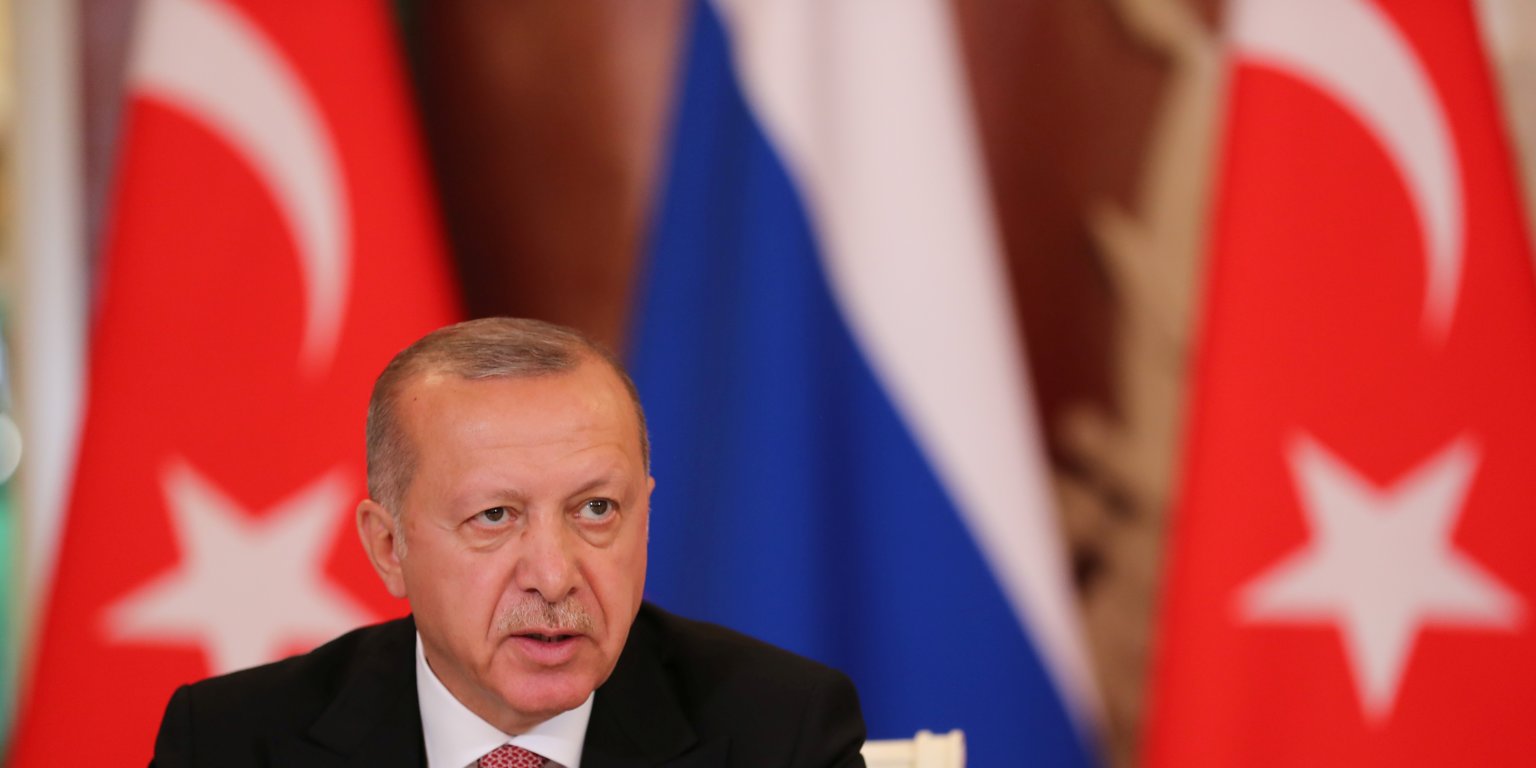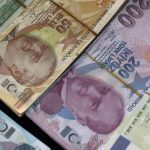Turkey’s president Erdogan. Reuters
- Turkey’s central bank admitted that it has boosted its foreign currency reserves with an “off balance sheet” arrangement.
- The central bank bolstered its holdings with “unorthodox” short-term currency swap deals. When removed from the total, they leave a lower-than-expected figure in its foreign currency reserves, worrying investors and analysts, as reported by the Financial Times.
- “The paranoid approach to analysts in Turkey isn’t helpful and not disclosing the off-balance sheet figures is unparalleled,” GAM’s Paul McNamara tells Business Insider.
Turkey’s central bank has caused consternation amongst analysts and investors after admitting that much of its publicized currency reserve figures are held in short-term swap contracts.
Turkey published foreign currency reserves of $28 billion recently, lower than analyst expectations. But some $12 billion of that is in the form of short-term borrowed money, as reported by the Financial Times:
“… the central bank confirmed that dollars borrowed in the first part of these transactions are added to the balance sheet. The obligation to later repay the dollars is recorded as an ‘off balance sheet item’.”
The decision to boost foreign reserves through short-term borrowing probably came “out of expediency rather than conspiracy,” according to Paul McNamara, an emerging markets investment director at GAM in an interview with Business Insider. “The paranoid approach to analysts in Turkey isn’t helpful and not disclosing the off-balance sheet figures is unparalleled but it would need to get a lot worse for someone like the IMF to get involved,” he added.
Countries like Turkey use foreign currency reserves to cover debt denominated in dollars, and for international trade. They back their own currencies with the ability to buy it in foreign currency, in other words. Simply put, countries with lower foreign reserve totals are riskier than those with higher levels. Using swaps instead of currency as a central bank reserve is extremely unusual.
“The country’s banks are very dependent on foreign wholesale financing,” according to Capital Economics in a research note.
Turkish banks are full of dollars after many wealthy companies and individuals fled to a stronger currency during the recent plunge in the lira’s value. The short term swaps — weeklong dollar borrowing by the central bank from local banks — are being reported as a gross dollar figure on the central bank’s balance sheet, but will be repaid off-balance sheet, confounding investors.
Last summer’s lira crisis highlighted the major issues at the heart of Turkey’s economy. The country’s difficulties have continued into this year, with many Turkish companies struggling to repay dollar loans due to the falling value of the lira.
The Financial Times quoted a former Turkish central bank official who claimed the decision to borrow dollars in this way was “unorthodox.” The country has borrowed some $13 billion in the period between March 25 and April 8, after only borrowing $500 million between January 1 and March 25, according to the central bank’s figures, available through Bloomberg, and cited in the Financial Times.
Total foreign currency reserves without the swap contracts would amount to less than $16 billion, according to the Financial Times.
In written responses to the Financial Times, the Turkish central bank said its accounting for the swaps was in “full compliance with international norms.”
Source: Business Insider



